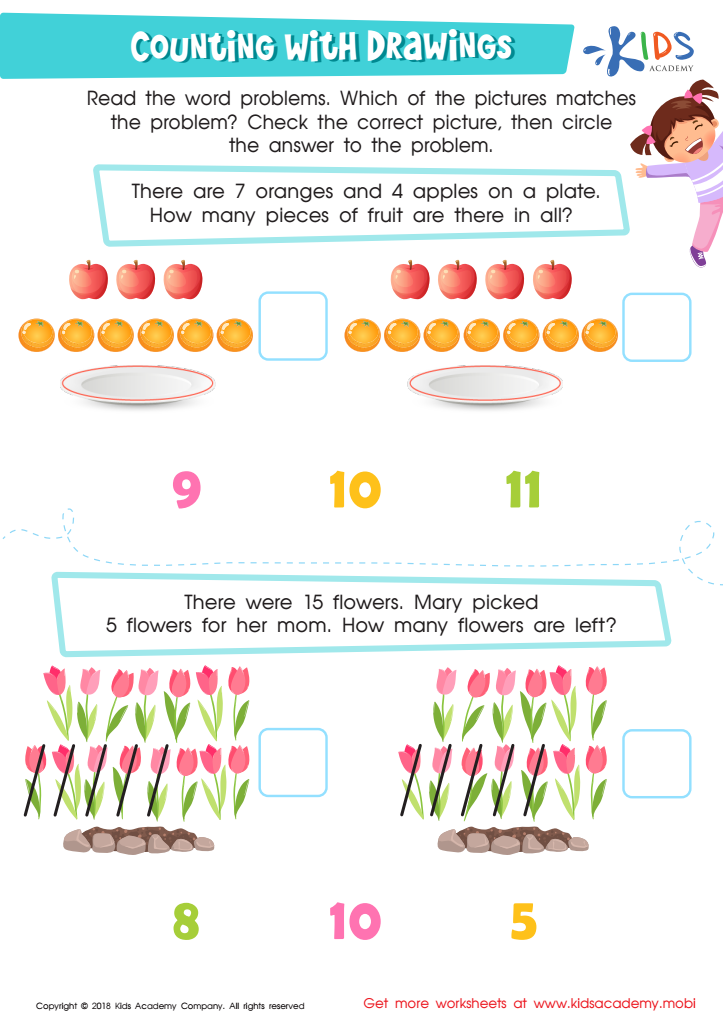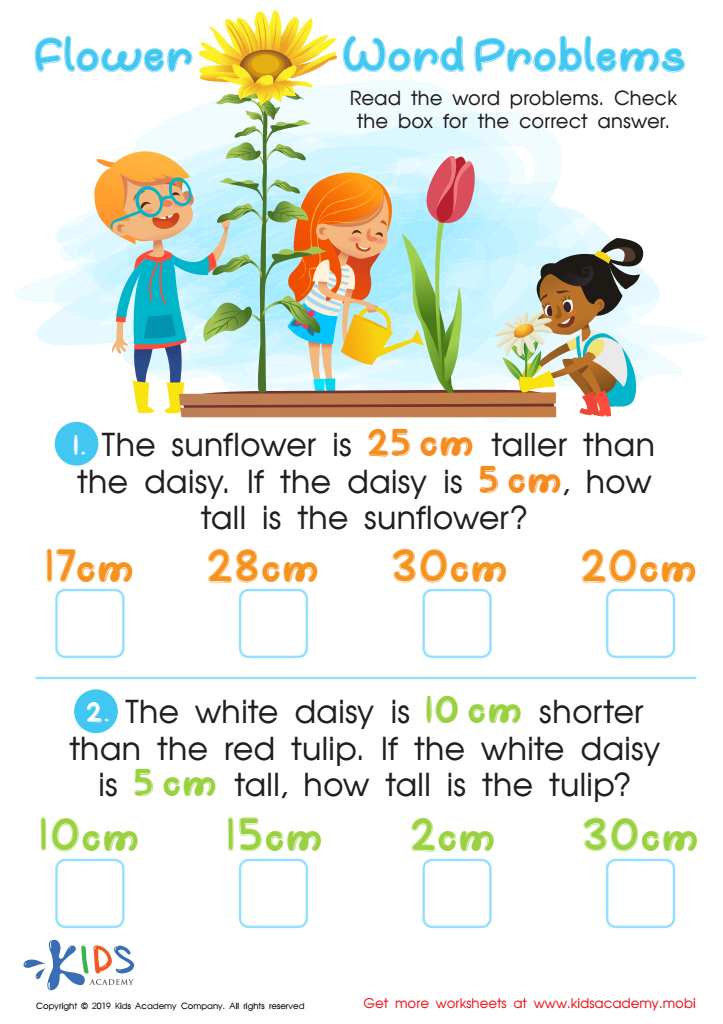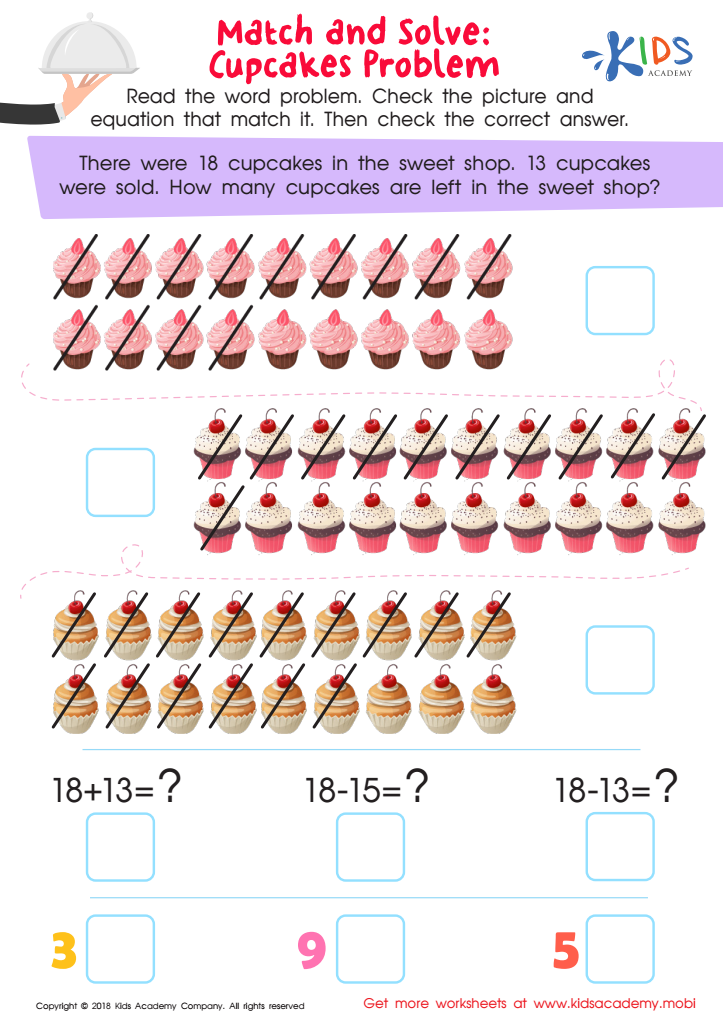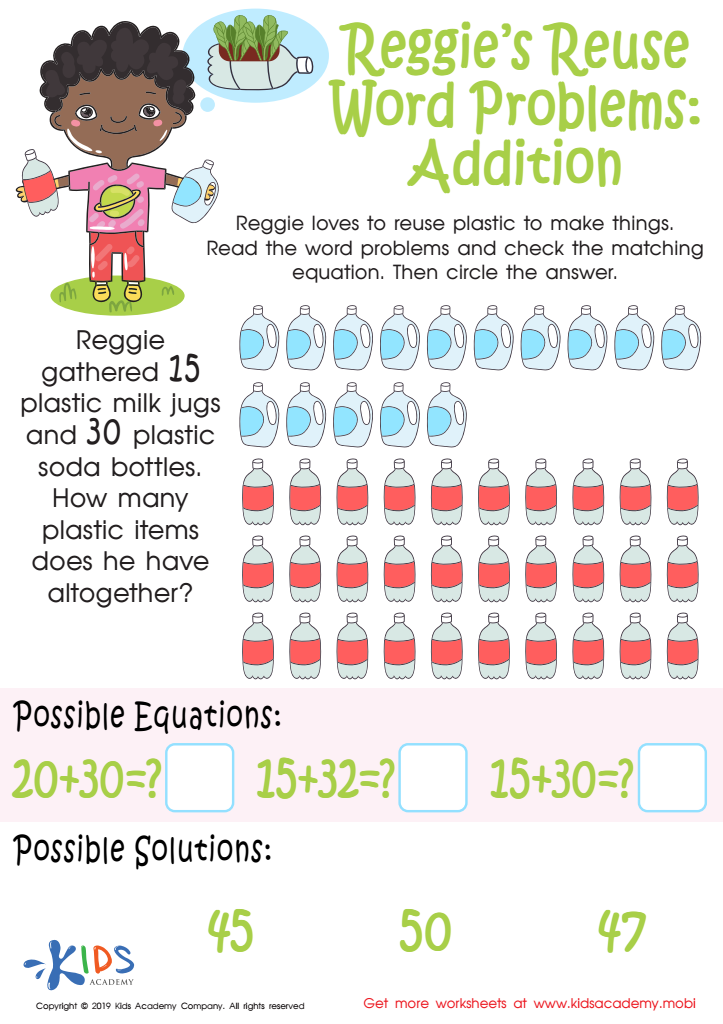Basic arithmetic skills Word Problems Worksheets for Ages 6-9
4 filtered results
-
From - To
Discover our engaging Basic Arithmetic Skills Word Problems Worksheets, designed specifically for children ages 6-9. These worksheets offer a fun and interactive way to enhance problem-solving abilities while building essential math skills. With a variety of scenarios that incorporate addition, subtraction, multiplication, and division, young learners will develop their critical thinking and reasoning capabilities. Our carefully crafted problems encourage kids to apply their arithmetic knowledge to real-life situations, fostering a deeper understanding of mathematical concepts. Perfect for classroom use or at-home practice, these worksheets make learning math an enjoyable adventure for your little ones! Start enhancing their skills today!


Counting with Drawings: Fruits & Chocolates Worksheet


Flower Word Problems Worksheet


Match and Solve: Cupcakes Problem Worksheet


Reggie's Reuse Word Problems: Addition Worksheet
Basic arithmetic skills, particularly in word problems, are crucial for children ages 6-9 because they serve as the foundation for problem-solving and critical thinking. At this developmental stage, children are transitioning from concrete to more abstract thinking. Word problems encourage them to apply mathematical concepts to real-life situations, promoting a deeper understanding of numbers and operations.
Additionally, engaging with word problems enhances language skills as children learn to decode narratives, identify relevant information, and differentiate between necessary and extraneous details. This integration of literacy and numeracy is vital for holistic development, as effectively solving a problem involves reading comprehension, logic, and reasoning.
Encouraging proficiency in word problems not only boosts children's math confidence but also prepares them for advanced concepts in future grades. By learning how to strategize and execute solutions, children gain vital skills that transfer to everyday life, such as budgeting and critical decision-making.
Furthermore, when parents and teachers prioritize these skills, they create a supportive environment that fosters curiosity and resilience. This approach ensures that children recognize the importance of mathematics beyond the classroom, linking to sound decision-making as they grow, thus laying a robust foundation for lifelong learning.

 Assign to My Students
Assign to My Students
















